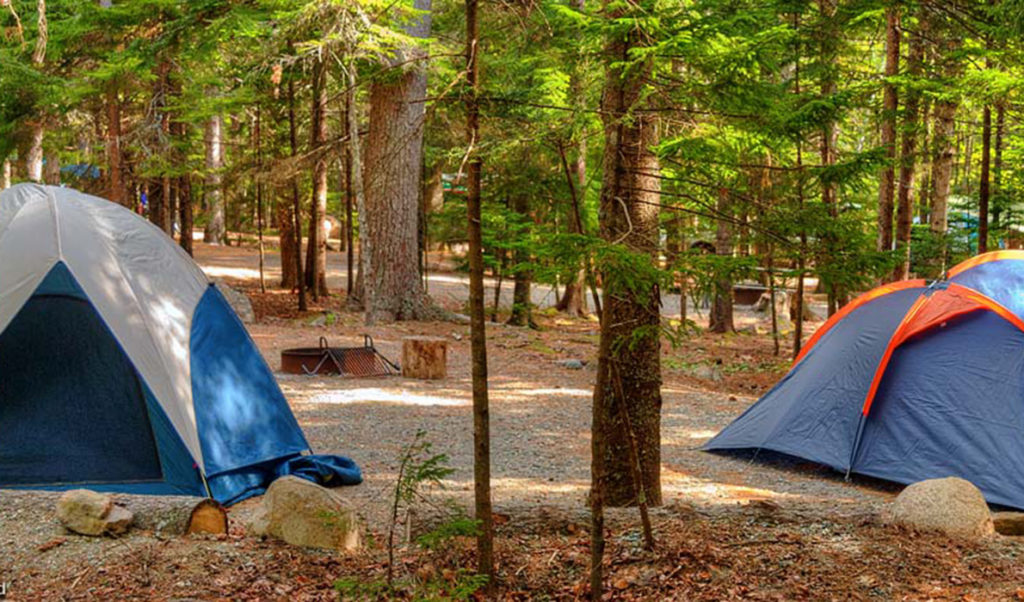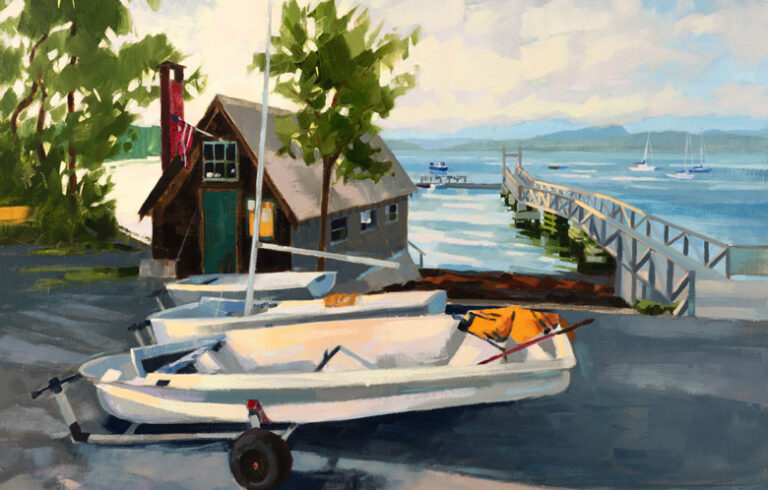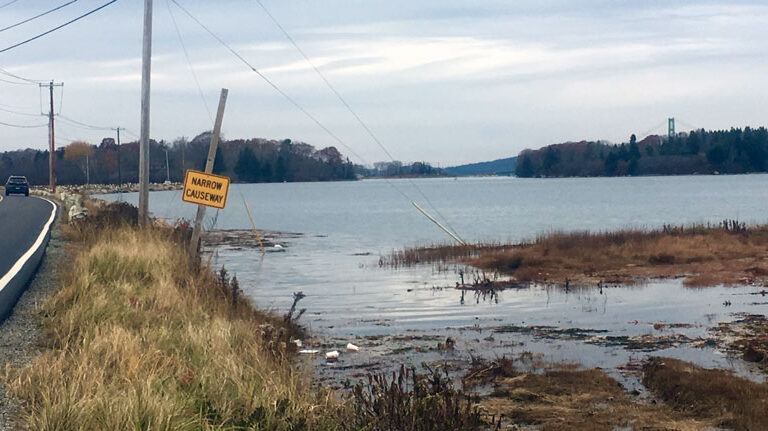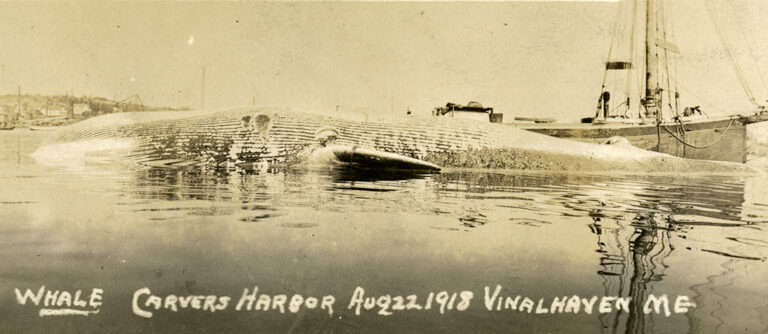For nearly 20 years, North Haven Community School’s high school students have ventured into the woods for a week each year, usually in the fall. They canoe, hike or occasionally bike, most often breaking and making camp each day in a new spot. The trip, our fall expedition or fall field study, is touted as a chance for students to create community, engage in appropriate challenges and risks, unplug and perform authentic tasks such as navigating, cooking, first aid and equipment maintenance.
Of late, the trip has connected to a core class curriculum—most recently, students saw the remnants of the German POW camp in Seboomook (north of Moosehead Lake), and researched and debated topics relating to warfare.
Some voices in the community see the trip as frivolity—why spend the time preparing for something that, as least superficially, so nonacademic? Why push kids to spend time out of their comfort zones, cold and damp, perhaps, or trudging along under a heavy pack?
In addition to the team building and high-stakes tasks mentioned above, a new justification for the trip has become clear to me: career prep.
In November,2013, a team of six small women archaeologists and paleo-archaeologists with climbing and caving experience descended through a tiny rock tube in South Africa and emerged with nearly 2,000 bone fragments of what seems to be a new species of modern humans, homo naledi. (As David Bowie seemingly prophesied, this translates to star man!) The team, its topside support and lead scientist Lee Berger spent three weeks in a base camp during the expedition.
In the Nova/National Geographic TV special “Dawn of Humanity,” Berger describes the various safety, equipment, planning and organizing tasks for which the group was responsible. It sounded strikingly familiar: a macro version of the work the students do to prepare for and execute their fall expedition.
Many of the highly touted STEM fields require similar expedition skills. My friends who study marine ecology, for instance, need to know how to captain a boat, snorkel and dive. Watershed ecologists venture deep into the woods or explore freshwater bodies from canoes and kayaks. Planning for time in the outdoors is similar, no matter the framework.
High school course offerings are essentially a contingency plan. They need to provide encounters with a broad spectrum of subjects and levels just in case a student needs them. Those required years of math class might never come into play again, or they might be necessary prerequisites for college calculus for the aspiring scientist, doctor or mathematician. Band and chorus might not appeal to all, but who knows what talents are lying dormant unless they are allowed an outlet? Is there a practical application for chemical equations? Not necessarily, but without them a student would be lost in a higher-level college class that could open the door to countless professions.
Similarly, if we provide students with opportunities to try canoeing, hiking, whitewater rafting, rock climbing and camping in a safe and supported environment, they may never try them again in their adult lives. On the other hand, those early encounters might lead to an enthusiasm that carries them not only into a fulfilling recreational activity, but perhaps to a career in archaeology, ecology, paleontology, anthropology, geology or ethnomusicology, all fields that require time in the actual, literal field.
Being comfortable with some discomfort opens the doors to travel opportunities and experiences beyond the obvious. A former student, one who excelled on these expeditions, recently presented her thesis on the Baye Fall Islamic Brotherhood with whom she traveled for a month. I imagine some of the skills she gained while slightly cold, slightly damp and tired after a day of hiking and climbing came to bear in the entirely foreign environment in which she immersed herself.
Here on North Haven, the school is the primary provider of experiences for students, and it’s in their best interest to keep the experiences as diverse as possible. Academic, life and career skills are there to be experienced in the classroom, on the water, or on the mountaintop.
Courtney Naliboff lives and teaches on North Haven.





